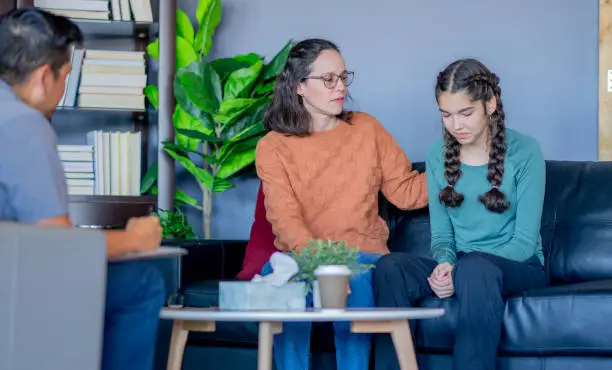Grief is one of the most powerful emotional experiences a family can go through. When a loved one passes away or a major loss occurs, every member of the family is affected in different and deeply personal ways. While grief can bring people closer, it can also create distance, misunderstandings, and emotional tension.
The reality is that families rarely grieve in the same way or at the same pace. These differences can reshape relationships, sometimes temporarily and sometimes permanently.
Understanding how grief changes family relationships—and how counselling can support healing—can make the journey less overwhelming and more connected.
Grief Affects Everyone Differently
One of the main reasons grief impacts family relationships is that no two people grieve alike. Each family member carries a unique bond with the person lost. A spouse may grieve the loss of their life partner, a child may grieve the loss of their sense of security, and a sibling may grieve the loss of their closest confidant.
Because grief is so personal, it can be easy to assume others should feel the same way we do. When they don’t, families often misunderstand each other’s reactions.
Some may cry openly, while others stay silent. Some may want constant togetherness, and others need space. These differences can lead to frustration or feelings of being unsupported, even when everyone is simply trying to cope in their own way.
Shifts in Family Roles and Responsibilities
After a major loss, family roles often shift—sometimes abruptly. For example, the person who managed finances, provided emotional support, or handled daily routines may no longer be there. This sudden change can create stress or imbalance within the family structure.
A parent who loses a spouse may have to juggle both parenting and household responsibilities alone. Children may feel pressured to “grow up quickly” to fill emotional or practical gaps. Siblings may begin to take on new roles, such as becoming the “strong one” or the “caregiver,” even if they do not feel prepared.
These shifts can bring out hidden strengths, but they can also create tension, resentment, or burnout. Over time, the stress of new responsibilities can strain relationships unless families learn how to communicate and support one another.
Emotional Distance and Communication Breakdowns
In times of deep grief, communication often becomes complicated. Family members may avoid discussing their feelings to protect each other, or they may assume others don’t want to talk about the loss. Some may become withdrawn, while others become overly emotional. These differences can create emotional distance, making each person feel alone in their grief—even when surrounded by loved ones.
Misunderstandings such as “You don’t care enough” or “You’re grieving too much” can lead to conflicts. When emotions run high, even small disagreements can escalate. Without healthy communication, families may unintentionally push each other away at a time when they need connection the most.
How Grief Counselling Helps Individuals Heal
Grief counselling offers individuals a safe space to express emotions without judgment. A grievance counsellor near me helps people understand the stages and experiences of grief, recognize their personal grief style, and learn coping tools that fit their emotional needs.
For individuals who feel stuck, numb, overwhelmed, or isolated in their grief, counselling provides support, structure, and reassurance. It also helps people process their pain at their own pace, which reduces emotional pressure within the family.
By addressing personal grief, individuals become better equipped to engage in healthier interactions with loved ones.
How Family Counselling Restores Connection
While grief counselling focuses on individual healing, family counselling helps the entire family understand how grief is affecting their relationships. This type of therapy can be transformative because it allows each member to share their experiences and feelings in a guided environment.
A family counsellor helps:
- Improve communication and reduce misunderstandings
- Identify unhealthy patterns that emerged after the loss
- Teach family members to support one another without judgment
- Create new routines and role distributions that feel fair
- Strengthen relationships that may have weakened due to grief
Family counselling also gives families tools to discuss the loss openly, express difficult emotions safely, and rebuild trust or connection that may have faded during the grieving process.
Most importantly, counselling reminds families that they are not alone. Grief may change relationships, but with support, those relationships can become more resilient and compassionate.
Healing Together After Loss
Grief will always change families—but change does not have to mean damage. With time, openness, and the right support, families can learn to understand each other better, communicate more honestly, and reconnect in meaningful ways. Whether through grief counselling, family counselling Vancouver, or both, healing becomes a shared journey rather than a solitary struggle.
Loss may reshape the family, but it can also strengthen the bonds that remain—helping each member move forward with more empathy, understanding, and hope.

